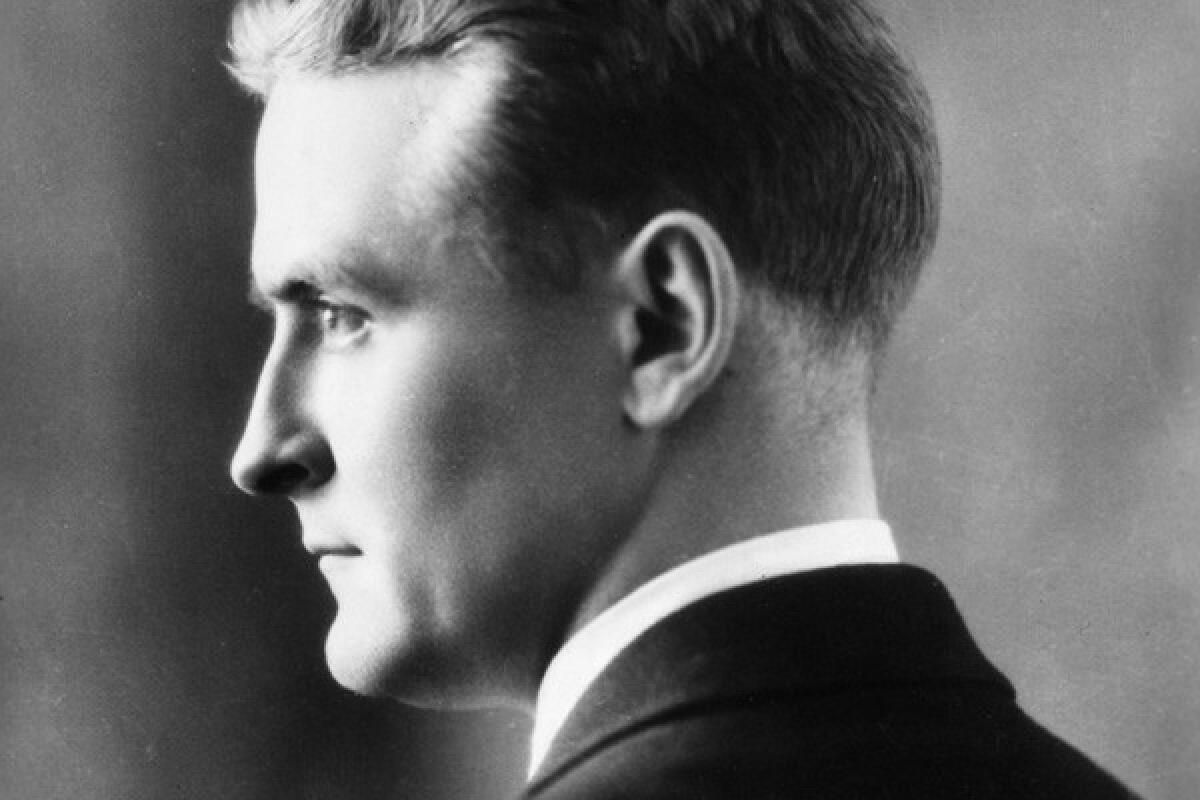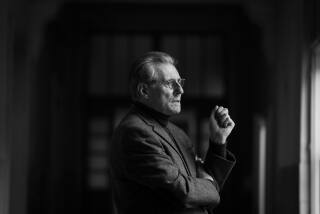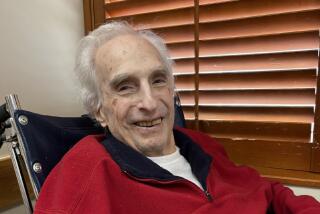F. Scott Fitzgerald has long been a Hollywood inspiration

Since the publication in 1920 of F. Scott Fitzgerald’s first novel, “This Side of Paradise,” his life and career have been scrutinized, studied and dissected in countless critical essays, articles and biographies.
Hollywood too has been endlessly fascinated with his novels and short stories. In fact, there have been four feature adaptations alone of his 1925 Jazz Age novel, “The Great Gatsby,” the latest being Baz Luhrmann’s opulent 3D version that opened to big ticket sales Friday.
But Hollywood has been obsessed not just with his prose but also with the novelist himself.
PHOTOS: The Roaring ‘20s on-screen
Fitzgerald’s own life proved to be far more tragic than those of most of the flawed heroes who populate his stories. Once the epitome of the madcap, glamorous Jazz Age, Fitzgerald spiraled into alcoholism and money woes. There was the madness of his wife, Zelda, and a disastrous effort as a screenwriter in Hollywood.
The last year of his life, though, Fitzgerald became dedicated once again to his craft and was writing his Hollywood tale “The Last Tycoon” when he died of a heart attack at age 44 on Dec. 21, 1940.
Jeffrey Davis, chair of the screenwriting department at Loyola Marymount University’s School of Film and Television, believes Hollywood has generally done a disservice to Fitzgerald the man.
“Fitzgerald tends to be portrayed in one of two ways,” he said. “Either as a total and complete drunk who can’t do anything at the end of his life, or he is a great romantic poet who outlived his time, which I don’t believe is true.”
The real truth, said Davis, “is he had been sober for a year and was working on ‘The Last Tycoon’ when he died. He got up every morning that last year of his life and faced that page and he worked. But it’s not very dramatic, and Hollywood doesn’t trust the audience to be interested in the truth.”
Here’s a look at four films that offer vastly different portraits of Fitzgerald.
PHOTOS: 50+ images from ‘The Great Gatsby’
‘F. Scott Fitzgerald and ‘The Last of the Belles’”
Davis has high praise for this 1974 ABC television movie directed by George Schaefer and written by James Costigan. Set in 1928, the drama finds Fitzgerald (Richard Chamberlain) broke, drinking too much and desperately trying to find inspiration for a new short story. Zelda (Blythe Danner) has, as he describes it, “gone quiet” and is in the throes of her mental illness.
“That was the great tragedy of his life. [Zelda] was schizophrenic, and there was nothing he could do about it,” said Davis.
During this time Fitzgerald wrote a fictional account of his courtship, “Last of the Belles,” and the film interweaves that short story — featuring Susan Sarandon and David Huffman as the fictional versions of Scott and Zelda — with the real-life drama.
“I think it gets the closest to the real Fitzgerald,” he said.
‘Beloved Infidel’
During the last years of Fitzgerald’s life, he was having an affair with the British-born Hollywood gossip columnist Sheilah Graham. She was the model for Kathleen in Fitzgerald’s unfinished “The Last Tycoon.” Fitzgerald died in her apartment.
In 1958, Graham wrote, in collaboration with Gerold Frank, the bestselling “Beloved Infidel,” which Edmund Wilson in the New Yorker claimed was “the very best portrait of Fitzgerald that had yet been put on print.”
TRIO: The men who would be Fitzgerald
The same can’t be said of the 1959 glossy melodramatic film version starring a miscast Gregory Peck as Fitzgerald and Deborah Kerr as Graham. “It is almost impossible to watch it, it’s so melodramatic,” said Davis.
‘Midnight in Paris’
Woody Allen offers an affectionate if idealized version of Fitzgerald (Tom Hiddleston) in his Oscar-winning 2011 romantic comedy. Owen Wilson’s character is transported magically to 1920s Paris, where he meets a handsome, jaunty Fitzgerald and Zelda (Alison Pill) at a party for Jean Cocteau, and they invite him to go to famous Chez Bricktop nightclub., Fitzgerald is just one of the many expatriate American writers that Wilson encounters, including, most memorably, Ernest Hemingway.
‘Last Call’
This well-received 2002 Showtime drama, also known as “Fitzgerald,” written and directed by the late Henry Bromell (“Homeland”), covers the same period in Fitzgerald’s life as “Beloved Infidel” but is seen through the eyes of Frances Kroll Ring (Neve Campbell), the then-23-year-old aspiring writer who became Fitzgerald’s (Jeremy Irons) secretary in 1939. The drama is based on her 1985 memoir, “Against the Current: As I Remember F. Scott Fitzgerald.”
“Everybody said he died in defeat, and he died drunk,” Ring told the Times in 2002. “He didn’t. He died working like the devil.”
More to Read
Only good movies
Get the Indie Focus newsletter, Mark Olsen's weekly guide to the world of cinema.
You may occasionally receive promotional content from the Los Angeles Times.











